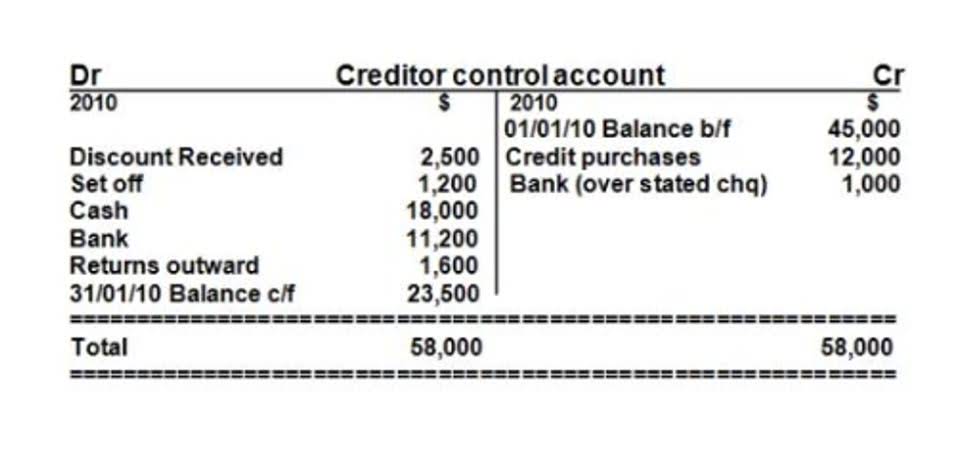Accounting Terminology Guide Over 1,000 Accounting and Finance Terms

The remainder of this article, however, will be devoted primarily to business accounting. The Securities and Exchange Commission has an entire financial reporting manual outlining the reporting requirements of public companies. Because of the simplified manner of accounting, the cash method is often used by small businesses or entities that are not required to use the accrual method of accounting. These four largest accounting firms (Ernst & Young, KPMG, PricewaterhouseCoopers, Deloitte) conduct audit, consulting, tax advisory, and other services.
Control Deficiency
- General name for money, notes, BONDS, goods or services which represent amounts owed.
- The reports serve to assist the management team in making strategic and tactical business decisions.
- Method of ACCELERATED DEPRECIATION, approved by the INTERNAL REVENUE SERVICE (IRS), permitting twice the rate of annual DEPRECIATION as the STRAIGHT-LINE DEPRECIATION method.
- A qualified REMIC is generally taxed like a partnership, unless it takes contributions after its start up day or engages in a prohibited transaction.
- If the entries aren’t balanced, the accountant knows there must be a mistake somewhere in the general ledger.
- To assume the RISK of buying a new ISSUE of securities from the issuing CORPORATION or government entity and reselling them to the public, either directly or through dealers.
It prepares accurate financial statements, like cash flow, balance sheets, and income statements, to inform external stakeholders, such as investors and regulators. Ever wondered how businesses track financial health or ensure regulation compliance? The answer lies in Accounting—a systematic process of recording, analysing, and reporting financial transactions. This blog unravels What is Accounting, its diverse types, and its critical role in decision-making, ensuring you’re equipped with insights into this essential practice. Accounting is the process of recording, summarizing, and reporting financial transactions to provide useful information for decision-making. It accounting define helps businesses track performance, manage resources, and maintain financial transparency.
- The history of accounting has been around almost as long as money itself.
- Expenditures that are written off during two or more accounting periods.
- Process of divulging accounting information so that the content of FINANCIAL STATEMENTS is understood.
- The accounting standards are important because they allow all stakeholders and shareholders to easily understand and interpret the reported financial statements from year to year.
Financial Accounting
- If one taxpayer itemizes then the other is required to by law even if the married filing separate taxpayer is unknowing of what is included on the spouses separate return.
- GAAP outlines a set of principles to ensure consistency in reporting.
- Each governing agency and its forms scheduled reporting and most importantly payments have a required due date.
- An accelerated method of DEPRECIATION in which the depreciable value if an ASSET is multiplied by a decreasing fraction each year of the asset’s useful life.
- Large accounting solutions include Oracle, NetSuite, or Sage products.
A way of measuring how profitably and efficiently assets are being used to produce AI in Accounting sales. After a taxpayer’s basis in property is determined, it must be adjusted upward to include any additions of capital to the property and reduced by any returns of capital to the taxpayer. Additions might include improvements to the property and subtractions may include depreciation or depletion. A taxpayer’s adjusted basis in property is deducted from the amount realized to find the gain or loss on sale or disposition. The International Financial Reporting Standards (IFRS) provide a global framework for preparing financial statements, enhancing transparency and comparability.

Installment Method

These frameworks dictate how transactions should be recorded and reported, ensuring transparency for stakeholders. Accounting information can be developed for any kind of organization, not just for privately owned, profit-seeking businesses. One branch of accounting deals with the economic operations of entire countries.

Statement of Financial Condition
The difference between these two accounting methods is the treatment of accruals. Naturally, under the accrual method of accounting, accruals are required. Larger companies often have much more complex solutions to integrate with their specific reporting needs. Large accounting solutions include Oracle, NetSuite, or Sage products. Tax accounts balance compliance with reporting rules while also attempting to minimize a company’s tax liability through thoughtful strategic decision-making.

Allowance for Doubtful Accounts

The auditor is required to disclaim depending on the limitation in scope. Portion of OVERHEAD costs allocated to manufacturing, by the application of a standard factor termed a BURDEN RATE or OVERHEAD APPLICATION RATE. This exists when a properly designed control does not operate as designed, or when the person performing the control does not possess the necessary authority or qualifications to perform the control effectively. An accelerated method of depreciating a tangible long-lived ASSET by applying a fixed-rate based on some multiple of the STRAIGHT-LINE DEPRECIATION rate to its CARRYING VALUE. Obligation whose LIQUIDATION is expected to require the use of existing resources classified as CURRENT ASSETS, or the creation of other current liabilities. A tax exempt trust exclusively for the purpose of paying qualified higher education costs of the trusts designated beneficiary.
Company
Managerial accounting uses operational information in specific ways to glean information. For example, it may use cost accounting to track the variable costs, fixed costs, and overhead costs along a manufacturing process. Then, using this cost information, a company may decide to switch to a lower quality, less expensive type of raw materials. The key difference between financial and managerial accounting is that financial accounting provides information to external parties, while managerial accounting helps managers within the organization make decisions. Financial accounting guidance dictates when transactions are to be recorded, though there is often little to no flexibility in the bookkeeping amount of cash to be reported per transaction. Cost accounting focuses on a detailed break-up of costs for effective cost control.
